Long hours, complicated work, and constant pressure can have an impact on anyone. Sometimes this stress can be so overwhelming that it impacts an employee’s capability to work. If you feel that consistent stress is hindering your ability to perform, you may be eligible for job-protected leave or workers’ compensation benefits.
Whether you are eligible for leave depends on your employment status, employment type, and the impact that the stress has had on you. For employees feeling like their work has become too overwhelming to continue, there are a few legal routes that may help. Find out more about your options for stress leave in our brief guide below.
Employment Laws Regarding Leave
While no law explicitly details an employee’s right to stress leave, California does offer various options for employees who need to take time away from work. The main laws granting these rights include the following:
- The California Family Rights Act (CFRA)The California Family Rights Act (CFRA) was implemented in 1993 and offered more employees the opportunity to take time off work under eligible circumstances. Through CFRA, an employee may request up to 12 full weeks of unpaid leave while still having their position protected. To be eligible for CFRA leave, you must have worked at your job for at least one year and put in a minimum of 1,250 hours. You must also meet one of the following criteria:
- You were diagnosed with a “serious health condition” and need time to treat it and recover.
- One of your close family members has a serious health condition and needs to be cared for.
- You need to spend time with a newborn or recently adopted child.
- The Family and Medical Leave Act (FMLA)CFRA is largely based on the Family and Medical Leave Act (FMLA). This federal act grants the same rights to employees; it just does not extend to as many workers as California’s state act. Through FMLA, an employee may also request unpaid leave with job protection for up to 12 weeks. You can file an FMLA claim for the same reasons as you would for CFRA, but it also applies to qualifying exigencies for military families.
Taking Stress Leave from Work in California
With the help of FMLA and CFRA, an employee may be eligible to request stress leave from their employer in California. Because CFRA extends to more employees, you may have a stronger chance of receiving leave if you apply through the state’s act. To do so, you will have to prove that the consistent stress you’ve endured has become a serious health condition. California defines a serious health condition as any “illness, injury, or condition” that requires ongoing treatment or even inpatient care. This means that if you can demonstrate that your work-induced stress caused a mental or physical disorder or has had a lasting impact on your health, you may be eligible to request leave.
If you are granted stress leave through FMLA or CFRA, it will be unpaid, and you can take up to 12 weeks off as you need. Your employer is also required to offer job protection, where you must either be reinstated upon your return or transferred to a position of similar duties and wages.
Workers’ Compensation for Stress
Filing a workers’ compensation claim for excessive stress may be more difficult than requesting unpaid leave. However, there are some cases where this stress is caused by a hostile work environment or unfair behavior in the workplace. If something like this occurs, an employee has the right to file a discrimination or harassment claim against their employer.
For an employee facing stress solely from their job, they may be able to receive workers’ compensation if they receive a psychiatric injury. According to the state’s labor code, workers may be eligible for compensation if their workplace stress causes a physical or mental disorder.
FAQs
Q: Can You Get Paid for Stress Leave in California?
A: The main forms of stress-related leave in California are unpaid. One of the only ways an employee may be able to receive payment for their time off is if they take PTO. Unfortunately, not every employee is granted PTO, and it can be difficult to save days up for extended leave even if you are. Filing a workers’ compensation claim for a stress-related injury may also help to provide financial assistance while you heal.
Q: What Is the Difference Between Work Stress and a Hostile Work Environment?
A: While many individuals face severe stress from the regular duties of their position, sometimes employees may be stressed because of their surroundings. A hostile work environment occurs when other employees consistently harass, bother, or unfairly treat their coworkers. This poor behavior can often lead to excessive stress that affects the employee’s ability to work. When this occurs, the affected employee can file a claim against their work.
Q: Can Your Employer Fire You If You Take Stress Leave?
A: California is an “at-will” state for employment, which means employers can hire and fire their employees as they wish. However, this doesn’t mean that your employer has the right to fire you if they are angry or as a form of retaliation. In fact, if your employer terminates you because you requested or took leave, this is retaliation and a violation of your employment rights.
Q: How Do I Request Stress Leave?
A: To request leave, you’ll have to make sure that you are an eligible employee for CFRA or FMLA rights. From there, you can fill out the required forms to officially request leave. You must prove that you have a serious health condition that is a result of your stress in order for it to be granted.
Discuss Your Issues With a Qualified Lawyer Today
The Pratt Law Corporation has comprehensive knowledge of state and federal employee rights. If your stress is causing you to suffer, do not wait to discuss your options with our workers’ compensation lawyers. Contact our team at the Pratt Law Corporation to find out more about your rights to stress leave in California.




